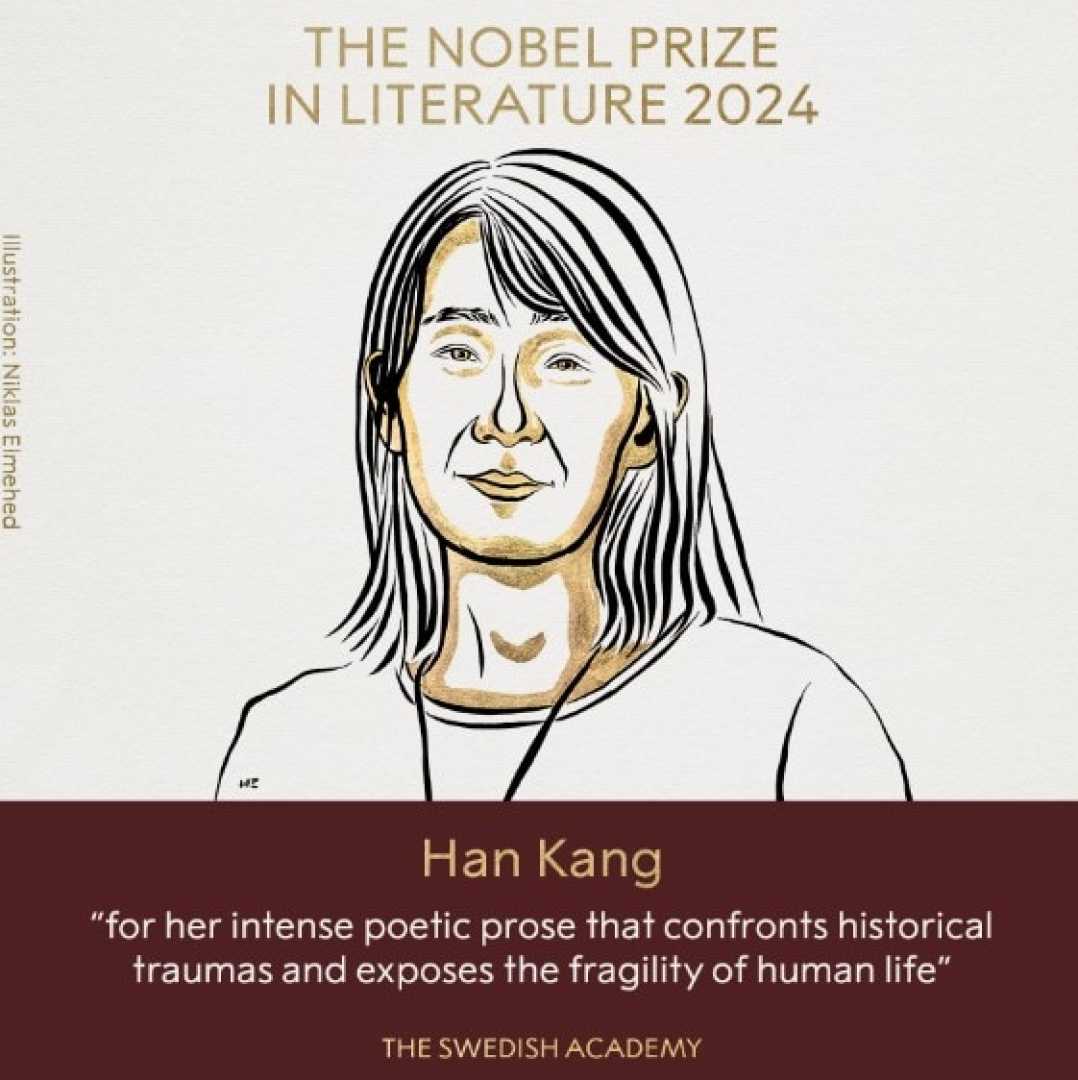News
South Korean Novelist Han Kang Awarded Nobel Prize in Literature

South Korean author Han Kang has been awarded the Nobel Prize in Literature for her “intense poetic prose that confronts historical traumas and exposes the fragility of human life.” The announcement was made by the Swedish Academy‘s Nobel Committee on Thursday evening, Australian time.
Han Kang, aged 53, has published several notable works, including “The Vegetarian,” “The White Book,” “Human Acts,” and “Greek Lessons.” Her novel “The Vegetarian,” released in 2007, earned international recognition and won the Man Booker International Prize for fiction in 2016.
The acknowledgment by the Nobel Committee places Han as the 18th woman to receive this prestigious literary honor out of 120 laureates to date. The last female recipient of the award was French author Annie Ernaux in 2022. Han Kang is also recognized as a Royal Society of Literature International Writer since 2023.
The prize, awarded since 1901, includes a monetary award of 11 million Swedish kronor (approximately $1.46 million), provided through a bequest from the award’s founder, Swedish inventor Alfred Nobel. The Nobel laureates receive their honors during ceremonies on December 10, which coincides with the anniversary of Nobel’s death.
“I was able to talk to Han Kang on the phone,” said Mats Malm, the Swedish Academy’s permanent secretary, following the announcement. “She was having an ordinary day, it seemed—had just finished supper with her son. She wasn’t really prepared for this, but we have begun to discuss preparations for December,” referring to the Nobel prize ceremony.
Despite the prestige surrounding the award, the Nobel Prize in Literature has faced criticism for traditionally focusing on authors from Europe and North America, often favoring style-heavy and story-light prose. Over time, efforts have been made to diversify the voices and geographical representation among its recipients.












